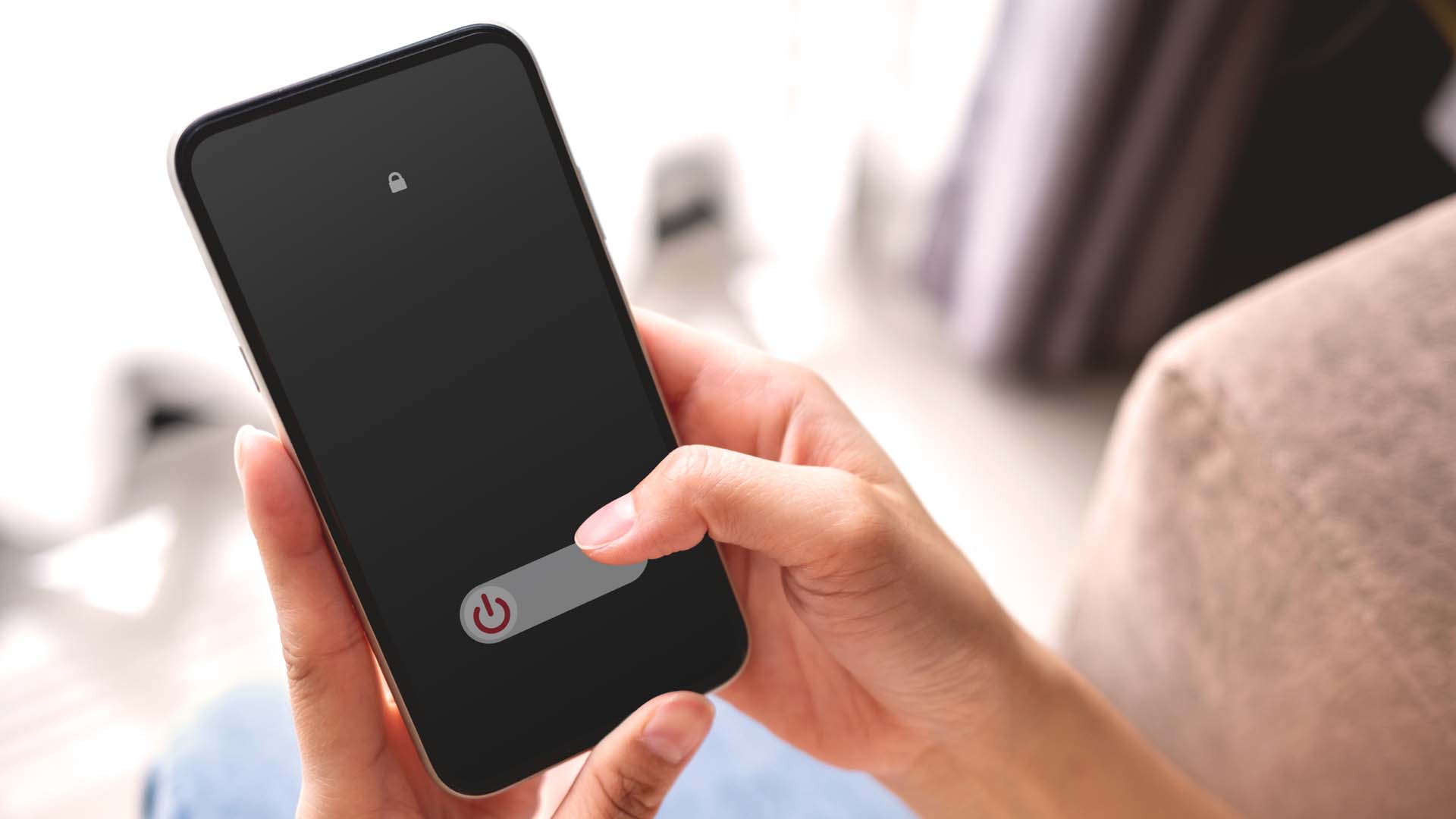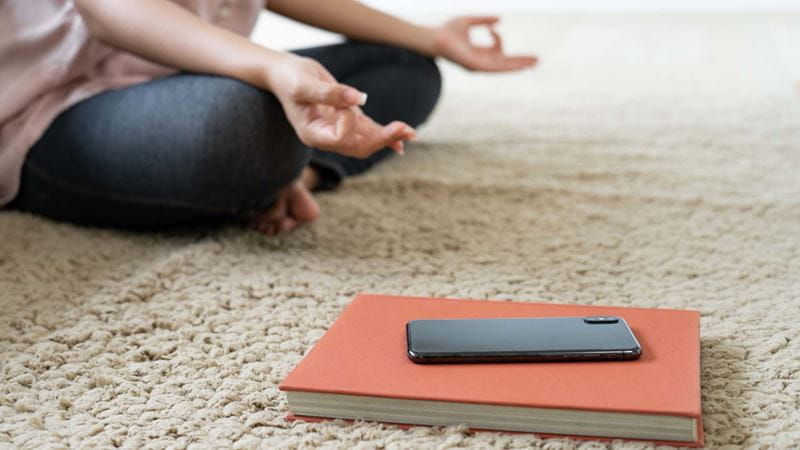How unplugging from tech can benefit your mental health
Find out all the ways that spending less time looking at screens can positively impact your mood, sleep and more.

Find out all the ways that spending less time looking at screens can positively impact your mood, sleep and more.

Tech is everywhere. Many of us use a smartphone, tablet computer or laptop every day.
These devices play an important role in our lives. A role that’s often positive. They allow us to connect with loved ones via video call or text. They give us access to the news and important information. They allow us to play games, look at photos and relax.
However, research suggests too much time spent using your devices can negatively impact your wellbeing.
For example, using screens before bedtime can disrupt your sleep, scrolling through social media can distract you from your hobbies, and constantly following the news can be overwhelming.
Don’t worry. You don’t need to stop using your phone or delete your Facebook account.
By being mindful of how technology affects you and taking some much-needed time away from it, you may improve your overall wellbeing.
With this in mind, let's explore some of the ways that disconnecting from technology can positively impact your mental health.
The amount and quality of sleep you get can have a significant impact on your mental health.
Research suggests good sleep is linked to increased productivity, greater life satisfaction, and overall well-being.
But technology use can influence your sleep patterns. Studies show using devices before bedtime can result in poorer sleep quality, particularly in children and adolescents.
However, excessive screen time throughout the day can impact sleep duration regardless of your age.
Experts believe this may be because looking at a bright screen before bed disrupts your sleep cycle.
Others think it might be because seeing social media posts can make you feel angry or frustrated.
Regardless of the cause, reducing your technology use throughout the day and before bed might lead to a more restful night's sleep, improving your overall well-being.
You’ll have more time and energy for hobbies

Spending hours on your phone can leave you with little time to pursue the activities that bring you joy and fulfilment beyond your screens, like hobbies, listening to music and time in nature.
It's no wonder that many of us choose to mindlessly scroll through social media rather than take a walk or engage in other physical activities.
Scrolling is an effortless, passive activity that requires little effort beyond the movement of our thumbs.
Although it's okay to choose your phone occasionally, consistently prioritising screen time over physical activity can lead to feelings of frustration and may cause you to miss out on experiences that have the potential to significantly improve your mental health, like going for walks and working out.
Our phones allow us to easily connect with our loved ones, which is especially important for those who live far away or are unable to visit in person.
However, it's crucial to strike a balance between virtual connections and real-life interactions.
Relying solely on your phone for socialising can lead to feelings of loneliness and isolation, which research shows can negatively impact both your physical and mental health.
By intentionally unplugging from technology and investing in real-life connections, you can grow more meaningful relationships with your loved ones.
This can involve scheduling regular video calls, but also making plans to see each other in person or even joining local groups or clubs to meet new people and expand your social circle.
You’ll be more zen

The way we use technology varies from person to person. Some people find their phone is a source of comfort.
They play soothing games, look at their favourite photos, and create mood boards. For others, their phone is a constant source of stress and negativity as they scroll through angry social media posts or follow the depressing news cycle.
While keeping up with the latest news and participating in online discussions can be good in small doses, being bombarded with rage-inducing or sad posts all day long can be overwhelming.
By reducing the time you spend on your phone or choosing more calming activities, you may notice an improvement in your mood.
You may even become less reactive to negativity.
As well as unplugging from tech more often, it’s important to be mindful about how you’re using your tech. We recommend choosing activities that promote relaxation and positivity, like listening to calming music, putting on a funny audiobook or following a guided meditation.
Pain, especially the kind that persists over time, can have a significant impact on our mental health.
Unfortunately, when we look at our screens, especially our phones, we often curl up into a hunched position that puts a lot of strain on our necks and upper backs.
You can benefit from spending less time with your technology and focusing on sitting up straighter and looking at the world around you.
But this doesn't mean you should then go back to hunching the next time you check your emails. Instead, you should always aim to elevate your screens as close to your eye level as possible.
By doing this, you’ll put less pressure on your neck and back, and avoid the pain and discomfort that can come from long periods of tech time.
Our tips for how to unplug:
Rosanna Spence has been a journalist for 10 years, reporting on a huge array of topics – from microwaves to cocktails, sustainable buildings, the Caribbean islands and beyond. She’s interviewed chefs at the helm of Michelin-starred restaurants and chatted to countless CEOs about their businesses, as well as created travel guides for experienced travellers seeking life-changing adventures. Throughout her career, she has created content for Business Traveller, i-escape.com, Pub & Bar, BRITA, Dine Out and many more leading titles and brands.
View author page
Expert nutritionists break down the most important foods to eat in each decade as we get older.

We reveal the 7 best tinned foods to supercharge your health while saving you time and money.

From ketchup to mayo – how healthy are your sauces? We find out the pitfalls and surprising benefits of our favourite condiments.

Could honey be the sweetest way to supercharge your health this year? Our experts explain the benefits and which to buy.

Our expert guide to the common foods you shouldn't mix with prescription drugs.

Experts reveal whether chilled supermarket soups are worth the extra cost and if some flavours are better for you than others.

Looking after your gut health could be one of the biggest things that you can do for your overall health. Here are the best foods to keep your gut happy.

The foods that could help you live longer and protect against chronic illness.



Everything you need to know about protein, from how it benefits your body to the best high-protein foods – and how much you really need.